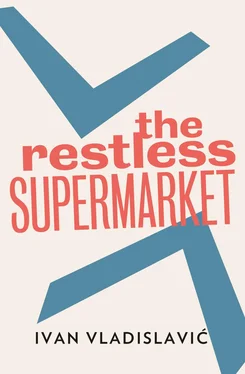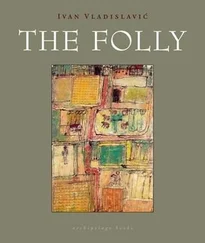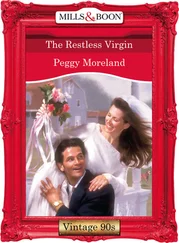‘Unfortunately, I never had more time than my annual leave and the occasional long weekend to devote to the system, and so I was never able to catch up. Also, the volume of corrigenda in printed matter of all kinds increased steadily over the years, and so the collected material gradually outstripped the index system. By the time I retired, the Records had grown to occupy more than a dozen files, and no more than a third had been catalogued.
‘I’m ashamed to say that it was only then, when I turned my full and undivided attention to the system, that I perceived its inadequacy. The essence was escaping me. The stress in proofreading must fall at least as strongly on the reading as on the proof: one might contemplate a single word and comprehend it, but one could hardly be said to be “reading” it. Proofreading as a skill only comes into its own at the level of the sequence, in the order of motion; a solitary word, set firmly in space, is beyond its purview. The eye has to move. The proofreader is a tightrope artist, managing the difficult tension between momentum and inertia, story and stock, sentence and word. As soon as he becomes too engrossed in the sense of what he’s reading, he loses sight of the unitary word; on the other hand, the failure to register sense at some level, however rarefied, will lead to harrowing technical misjudgements. If he is to survive this hazardous passage without falling, he must find the still moving point between the excitement of the chase and the rapture of possession.
‘To cut a long story short: I am revising the entire system, documents and catalogue alike, by providing fuller versions of the corrigenda, preserving the context of each one, arranged alphabetically in these notebooks. Returning to our example, you see the new version here, in the form: “anser/answer: Mr Goosen refused to anser questions about the price of eggs.” First the example, then the correct form. From the thing to be corrected, to the corrected thing. And note that this more complete version contains the germ of an explanation for the typist’s error — deeply buried as it may be — in the relationship between “anser” and “goose”.
‘The task remains daunting. I’ve got this mass of documents, growing larger by the day, as standards of correctness decline. Then perhaps a quarter or a fifth of the material — the proportion continues to shrink in relation to the mass — is referenced on these cards. I could simply throw the cards away, except that they help me to relocate the original corrigenda: over the years, many that seemed blindingly obvious when I first identified them have blended back into the printed background — like a bird in the bush, which vanishes as soon as you take your eye off it — and without an index card, it can take me hours of proofing and reproofing to drive them out into the open again. And then finally, I have these notebooks, growing steadily fuller, and matters of internal organization to think about. But in the end, I hope to arrive at a unified system.’
(If I had known then what would become of my System of Records, I might have abandoned the project entirely. And if I had looked into Spilkin’s heart …)
‘It’s a beautiful system,’ he said, casting his merry eyes upon me, eyes that seemed more than usually wet. I had touched him, I thought. ‘What are its beauties, specifically? Breadth, depth, one is tempted to say length. It’s ambitious, one might almost say grandiose. The beauty of error. It gives me goose-flesh.’
‘Thank you, Spilkin. I hoped you would understand.’
‘So, what are you going to do with it?’
‘I beg your pardon?’
‘You’re going to put it to some use, I should think.’
‘Must it be useful?’
‘Not necessarily. But it seems like a lot of effort to go to for no good reason.’
‘It’s no effort at all. I enjoy it, I find it very rewarding.’
I had some thoughts on my hobby-horse’s utility: one of my initial aims had been to determine species of error, and to assist in eliminating them. But Spilkin’s question betrayed an uncharacteristic crudeness, as if he were talking about a crowbar or a mallet, and so I kept my thoughts to myself, and the matter was left unresolved.
Be that as it may, Spilkin took to the task like a duck to water. He was an avid newspaper reader himself, and soon he was dredging up some gems, which he generously passed on to me. He was at ease in the murkier depths of the classifieds, areas of print even I found it difficult to venture into — 221. Miscellaneous Sales 235. Poultry/ Livestock 300. Bands/Discos 413. Hairdressers/Barbers 950. Senior Citizens — and he had the stomach for 107. Deaths, which is more than I can say for myself (duodenum or no duodenum). In my heyday, I’d made a few memorable finds in those funereal quarters — ‘knowing you enriched our livers’ … ‘Loved by al, missed by many’ … ‘I will always remember your simile’ — but lately I’d grown afraid of coming across someone I knew. There were too many familiar names, and just looking at them made my teeth ache. This aversion was a shame, because the quality of those particular pages deteriorated spectacularly as time went by: apparently the people employed to answer the telephones in the Classified Department were no longer required to speak English.
There was another reason: a surfeit of heroism. Too many exemplary demises, milk-fed and arum-scented, too many equable departures for glory. Nine out of ten people died peacefully. Did no one die kicking and screaming any more, cursing God and the sawbones? They all seemed to struggle with such good grace against cruel misfortune. One miserable death acknowledged, one long season of pointless suffering faced with bitterness and resentment, would have been a breath of fresh air.
*
In later years, the death notices became so consumed by corrigenda that I was able to venture back into that territory from time to time. The rot reached such unnatural proportions that it began to subvert the purpose of the service itself, and the whole enterprise acquired the tone of a macabre joke. One could imagine the unhappy surprise of those left behind when they came to clip their remembrances.
Maggots, death notices: Till we meat again … Our heart felt thanks … Safe in God’s cave … The father figure of refrigerator services … Pissed away after a long illness …
*
Spilkin and I began to meet at the Café nearly every day, circumstances permitting. Before making his acquaintance, I had fallen into the habit of arriving in the mid-afternoon, to pre-empt the stream of after-work regulars and improve my chances of securing my favourite table (I had not been pushy enough to ask Mrs Mavrokordatos to reserve it for me); now I found, by empirical experiment, that no matter how early I arrived, Spilkin had beaten me to it, and no matter how late I left, Spilkin would outstay me. On the single occasion that I stayed till midnight and the closing, he contrived to dawdle so that he would be the last through the door. All his waking hours were passed at the Europa. He took lunch and supper there — outlandish platters of moussaka and shish kebabs, spaghetti Bolognese and Vienna schnitzel, Strammer Maxes and Croque Monsieurs. In those days, my own eating habits were more conservative than they are today, and in any event, dining out constantly was beyond my means. I deduced that Spilkin was rather better off than myself — no doubt there is money to be made in spectacles and prudent investment. Why he should have such an antipathy to being in his own home, I do not know. He had a room in the Flamingo, a residential hotel in Edith Cavell Street, but I never set foot in it. The laws of propriety, which propriety prevented us from ever discussing, had declared our private lives, the lives we led once we left the Café, strictly out of bounds.
Читать дальше












